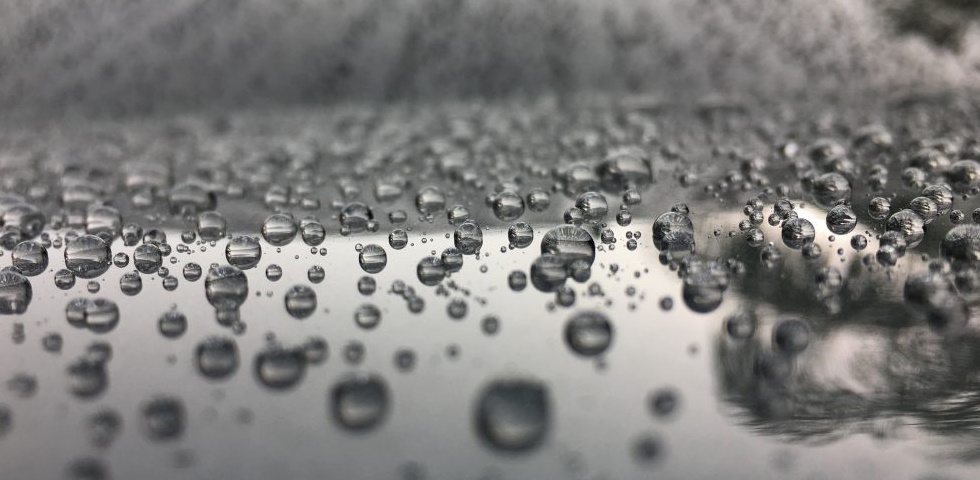You have probably seen many products, especially coatings, stating the contact angle it will provide. Often times it is a 110-degree contact angle. So what does that mean?
The contact angle is the angle between a liquid and a solid surface. So the flat surface being one side of the angle and the top of the bead being the other creates your angle. So the flatter the bead, the lower the angle will be (fig. a), and conversely, the higher the angle the more spherical the bead will be. (fig. b) Easy enough right? So what does this mean for detailing?
Normally we associate a high contact angle with really good protection. This is mostly true as quality protection does create high contact angle beads. But it does not always mean that. It is all dependent on the makeup of the liquid itself, which we are talking about water, and characteristics of the solid surface, in this case, it would be the top layer of protection.
Here you can see a car with a low contact angle
Where there is a car with great protection and much more circular beads.
This means high contact angle does not always mean good protection as you could spread coconut oil all over your paint and have some crazy beading, but would not stand up to the elements, this is not a good form of protection.
So what you want to look for is continued beading over a long period of time, right? A good protection will last months or even years if you are using a coating. However, even if the beading starts to diminish, it doesn’t mean protection is gone as it may just be the top layer of that particular chemical makeup. Look for how easy it is to remove contamination from the paint as this what protection is designed to do. Keep contamination off the paint itself, so once it is gone the contamination will be on the bare paint, and more difficult to remove or get dirtier, faster.
